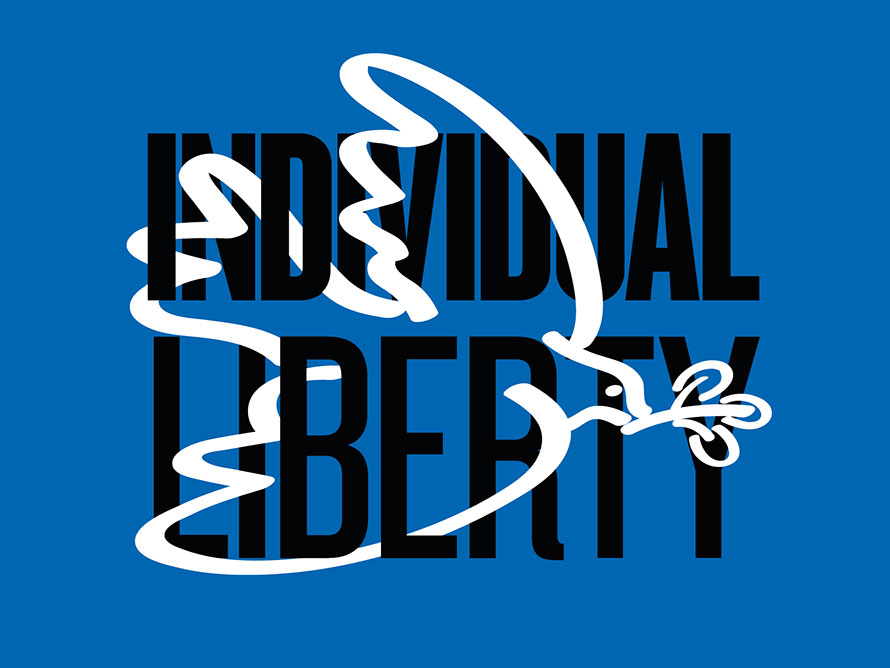Britain, like other Western nations, values its citizens' abilities to make their own choices. Yet Britons cannot do exactly as they like. What is liberty, and how much of it do we have?
Individual liberty
Britain, like other Western nations, values its citizens' abilities to make their own choices. Yet Britons cannot do exactly as they like. What is liberty, and how much of it do we have?
Q: What do we mean by individual liberty?
A: Individual liberty means each of us having the freedom to make our own choices and do what we want - within reason. As long as we respect the other three British values and the rights of others, then we are free to pursue our ambitions, and follow our own volition.
Q: What is the difference between human rights and liberties?
The difference is subtle, and the two terms are often used interchangeably. It could be said that human rights are fundamental principles which allow one to lead a dignified life, free from discrimination and violence - such as the right to free speech, or the prohibition of torture. They apply to all humans. The specific freedoms granted by a state to its citizens with the aim of protecting those rights are often called civil liberties.
Q: Does everyone in the world have the same rights?
A: Officially, yes. That is the idea behind the term "human rights".
In 1948, the UN adopted the Universal Declaration of Human RightsOrganised by the United Nations in 1948, this document enshrines the rights and freedoms of all human beings. Although not legally binding, it provides the foundations of human rights laws in many countries. (UDHR), declaring it a "common standard of achievement for all peoples and all nations". The document establishes principles such as the right to an adequate standard of living, the freedom from arbitrary arrest and the right to privacy.
Yet while the UDHR forms the basis of many international treaties, it has no real legal force.
In any case, its rights are violated every day across the world. For example, a recent report by the UN revealed that there are still over 40 million slaves in the world. Yet Article 4 of the UDHR states: "No one shall be held in slavery or servitude; slavery and the slave trade shall be prohibited in all their forms."
Q: What prompted the UN to write the declaration?
A: In the wake of the horrors of World War TwoA global war that lasted from 1939 to 1945 and included all of the great powers. and the HolocaustThe murder of six million Jewish people in Europe by Nazi Germany. Members of other minority groups were also killed. , governments around the world wanted to make sure that these atrocities never happened again.
The United Nations was created in 1945 to "promote international cooperation and to create and maintain international order". In the same year, the UN Human Rights Commission was established, with former US First Lady Eleanor Roosevelt as its chair, in order to create the UDHR. The declaration officially came into effect on 10 December 1948.
Q: What are our liberties in Britain?
A: To give just a few examples: we can vote for whoever we like, move around the world freely, say whatever we want and spend time with anyone. These rights are fundamental to democracy, which is underpinned by the rights to vote, speak and associate freely.
Q: Have we always had these liberties?
A: They have developed over time, with a few important milestones along the way.
The first really significant moment was the signing of the Magna CartaA charter signed by a group of noblemen and King John in 1215 which imposed limits on the powers of the king. in 1215, which included rights like the freedom from arrest with no reason.
Another important step was the 1689 Bill of Rights, which set down the freedom from "cruel and unusual punishment" and the freedom to protest, among other freedoms.
Slavery was abolished in the British Empire in 1833, while sex between men was decriminalised in 1967.
Q: How are they protected?
A: The UK Government respects the UDHR, but the country fleshes out its stance on human rights with specific policies. The European Convention on Human Rights was incorporated into British law in 1998, in the form of the Human Rights Act.
There has been some controversy over the act in recent years. As Home Secretary, Theresa May wanted to scrap it. She argued that it was too limiting, and stopped Britain from dealing effectively with foreign criminals or suspected terrorists (the Act blocked their deportation).
Keywords
Universal Declaration of Human Rights - Organised by the United Nations in 1948, this document enshrines the rights and freedoms of all human beings. Although not legally binding, it provides the foundations of human rights laws in many countries.
World War Two - A global war that lasted from 1939 to 1945 and included all of the great powers.
Holocaust - The murder of six million Jewish people in Europe by Nazi Germany. Members of other minority groups were also killed.
Magna Carta - A charter signed by a group of noblemen and King John in 1215 which imposed limits on the powers of the king.
Individual liberty

Glossary
Universal Declaration of Human Rights - Organised by the United Nations in 1948, this document enshrines the rights and freedoms of all human beings. Although not legally binding, it provides the foundations of human rights laws in many countries.
World War Two - A global war that lasted from 1939 to 1945 and included all of the great powers.
Holocaust - The murder of six million Jewish people in Europe by Nazi Germany. Members of other minority groups were also killed.
Magna Carta - A charter signed by a group of noblemen and King John in 1215 which imposed limits on the powers of the king.
